Benefits Of Kale For Skin, Weight Loss, Cancer Prevention & Many More!
All leafy greens are healthy but for some exceptional reason, kale is called the king of leafy greens! Apparently, it is the nutritional value of kale that gives the vegetable its superpower! The topmost health benefits of kale include its heart-healthy properties, anti-cancer properties and its ability to promote weight loss!
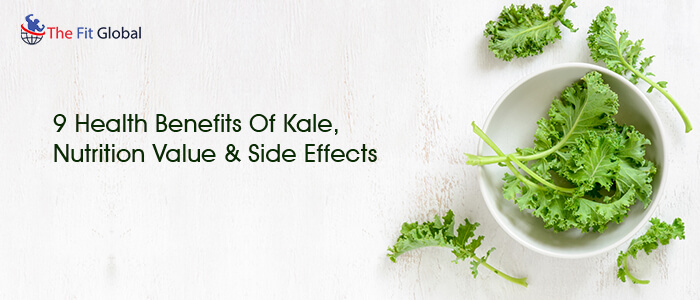
Not just this, kale is also an excellent food for strengthening your bones and enhancing your eye health.
Before we get to know what is kale good for, let us have a quick glance at kale nutrition facts, its associated health benefits and an interesting recipe of Kale smoothie that will nourish our body with some amazing nutrients!
Table of Contents
- Kale Nutrition Facts
- Health Benefits of Kale
- Recipe of Kale Smoothie
- Is Kale Good for You? Who Should Avoid Kale?
Nutritional Value Of Kale
Antioxidants And Major Nutrients Present In Kale
Apart from the presence of major antioxidants like quercetin, Kaempferol, polyphenols, vitamin C and beta-carotene, kale makes an excellent source of Vitamin A, Vitamin K and Manganese.
Other Nutrients Present in Little Quantities
Consuming kale regularly gives you little amounts of vitamin E, thiamin, riboflavin, niacin, vitamin B6, folate, calcium, iron, magnesium, phosphorous, potassium, sodium, zinc, copper and selenium.
Calories in Kale
There are only 36.4 calories in one cup of chopped kale which helps you meet 2% of your daily calorie requirement.
Carbohydrates, Protein, and Fats
Carbohydrates provide 2% RDA (7.3 grams per one cup) while fats and total proteins provide 1% (0.5 grams per one cup) and 5% (2.5 grams per one cup) of RDA respectively.
RDA refers to (Recommended dietary allowance).
One cup of chopped kale which is around 130 grams (cooked, boiled and drained, without salt) provides you with the following nutrients.1
| Vitamins | Grams | %DV (Percentage of daily requirement that it meets) |
|---|---|---|
| Vitamin A | 17709 IU | 354% |
| Vitamin C | 53.3 mg | 89% |
| Vitamin E | 1.1 mg | 6% |
| Vitamin K | 1062 mcg | 1328% |
| Thiamin | 0.1 mg | 5% |
| Riboflavin | 0.1 mg | 5% |
| Niacin | 0.6 mg | 3% |
| Vitamin B6 | 0.2 mg | 9% |
| Folate | 16.9 mcg | 4% |
| Pantothenic acid | 0.1 mg | 1% |
| Choline | 0.5 mg | |
| Betaine | 0.4 mg | |
| Minerals | Grams | %DV (Percentage of daily requirement that it meets) |
| Calcium | 93.6 mg | 9% |
| Iron | 1.2 mg | 6% |
| Magnesium | 23.4 mg | 6% |
| Phosphorous | 36.4 mg | 4% |
| Potassium | 296 mg | 8% |
| Sodium | 29.9 mg | 1% |
| Zinc | 0.3 mg | 2% |
| Copper | 0.2 mg | 1% |
| Manganese | 0.5 mg | 27% |
| Selenium | 1.2 mcg | 2% |
| Other elements | Grams | %DV (Percentage of daily requirement that it meets) |
| Carbohyrdates | 7.3 grams | 2% |
| Proteins | 2.5 grams | 5% |
| Fats | 0.5 grams | 1% |
Benefits Of Kale – What Is Kale Good For?
1. Benefits Of Kale For Weight Loss

Raw kale contains 84% of water which makes it the best weight loss food because foods that are enriched with water can reduce your appetite keeping you up for long periods.
Also, it is the calories that account to our weight. One cup of chopped kale can only give you around 36 calories which is a great advantage for those looking for weight loss.
Low-calorie diets sure help in weight loss but following a very low-calorie diet is definitely not a good way to go if you are looking for a permanent weight loss. 2
Apart from being low in calories and a being a water-rich food, kale is a good source of dietary fibre which is why it can promote an easy weight loss.
Studies conducted on fibre intake and changes in body weight have proved that the intake of dietary fibre helps in weight management and increases satiation (feeling of fullness) 3
2. Kale Benefits For Skin
Our food intake has a significant impact on our skin health. Though we try to apply external beautifying agents, our internal system needs proper nourishment so as to make our skin appear fresh and lively.
Nutritional deficiency is known to cause skin disorders like scurvy and skin fragility.
Kale Can Help In Anti-Ageing
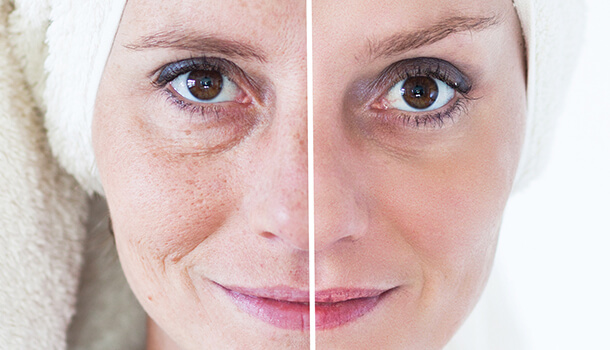
Consuming foods rich in vitamin C and vitamin A is known to benefit our skin immensely. Vitamin C, in particular, can increase the production of collagen which can increase the elasticity of your skin. A good elasticity helps in anti-aging, thereby, helping you look young and vibrant. 4
Studies conducted on the consumption of kale extract by a group of volunteers and analysis of the results after 10 months of the supplementation have proved that it increases the production of collagen. 5
Consumption Of Kale Prevents Sunburns

Sensitive skin can be easily prone to sunburns and ultraviolet radiations but we can manage to not get affected by it if we choose to maintain a healthy diet.
Antioxidants present in vitamin C can fight the free radical damage and protect your skin from powerful ultraviolet radiations.6
One cup of chopped kale which is around 67 grams meets 206% and 134% (RDA) of vitamin A and vitamin C respectively.
Kale Helps In A Quick Wound Healing

Studies conducted on the consumption of kale among rats have proved that it helps in a better wound healing because of the presence of vitamin K in it which helps in a faster repair of the damaged cells. 7
3. How Does Kale Benefit Your Heart Health?
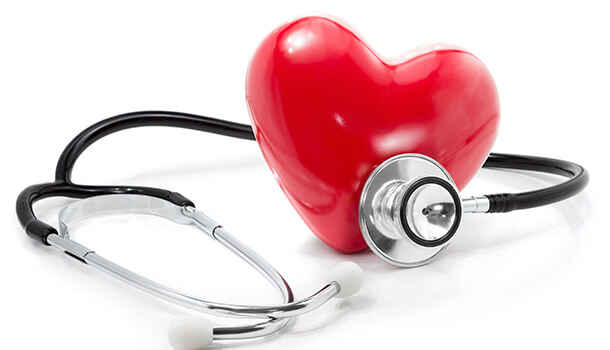
Studies conducted on a regular intake of green leafy vegetables and cruciferous vegetables has resulted in a significant decrease in the risk of cardiovascular diseases. 8
Kale is also a good source of potassium which keeps you away from strokes and cardiovascular diseases.9 Just one cup of boiled kale (without salt) gives you 296 mg of potassium with 8% RDA.
You will be surprised to know that a deficiency of vitamin B6 associated with a lower intake of fibre can increase your risk of cardiovascular diseases.9
Consuming one cup of kale provides 9% of the daily recommended value of vitamin B6 and 10% of dietary fibre which can protect your heart health.
To make the most out of the health benefits of kale, drinking kale juice is one healthy habit that you can inculcate. Studies conducted on men with high cholesterol (hypercholesterolemia) proved that regular consumption of kale juice (150 ml) for 12 weeks could decrease the risk of coronary artery diseases. 10
This is because of the decrease in LDL (bad cholesterol) and an increase in HDL (good cholesterol).
4. Benefits Of Eating Kale For Diabetics
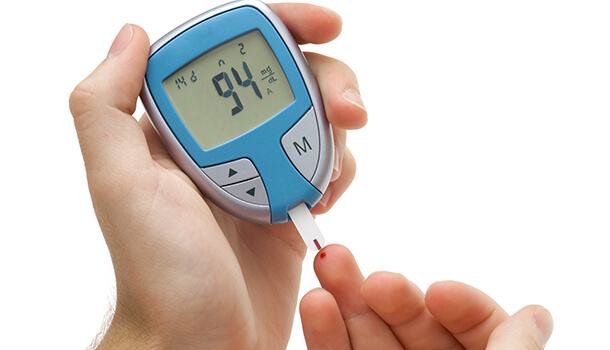
For people with diabetes, it is all about maintaining a healthy diet which does not aggravate the problem. Keeping a check on your diet, exercising regularly and going for regular checkups can prevent the blood sugar spikes from occurring.
Foods like kale are the ones you must opt for since they can suppress the glucose levels after your meals.
Studies conducted among a group of men regarding the intake of kale and its effect on blood glucose levels have proved that the group of men who consumed kale and not those who consumed placebo could witness the decrease in blood sugar levels after the meals. 11
Also, kale is very low in the glycemic index which is very much essential for those suffering from diabetes. Low glycemic index helps in a slow and better absorption of carbohydrates from food which reduces the chances of blood glucose spikes.
Diabetics are much easily prone to cardiovascular diseases since they can gain weight much easier. Kale is a good source of dietary fibres which can keep your weight in control, thereby reducing your risk of obesity and heart disorders.
5. Kale Strengthens Your Bones
Studies have shown that vitamin K plays an important role in increasing bone strength. 12 Kale is an excellent source of vitamin K! Just one cup of boiled, drained and chopped kale provides more than 100% of your daily vitamin K requirement.
Kale can increase the bone mineral density which reduces the risk of osteoporosis. Also, kale can reduce the chances of bone fractures due to its ability to increase bone mineral density. 13
Apart from vitamin K, kale is also a good source of potassium, calcium, vitamin C, magnesium and phosphorous, all of which are essential for improving your bone health.
6. Benefits Of Kale For Cancer Prevention

Though cancer is hereditary, improper lifestyle habits can also make one susceptible to the disease which is why it becomes incumbent on us to take necessary precautions and indulge in healthy eating habits so as to put ourselves in a safe zone.
Consuming kale on a regular basis is a great preventive measure because of the presence of organosulfur compounds present in this highly nutritious cruciferous vegetable.
These compounds exhibit chemopreventive properties such as preventing the proliferation of tumour cells, showing anti-microbial effect, helping in free radical scavenging all of which contribute to the prevention of cancer. 14
Also, kale is the best source of antioxidants such as carotenoids, polyphenols, flavonoids and vitamin C, all of which play an important role in the prevention of cancer. However, it is much advisable to consume kale in raw form since cooking the vegetable might reduce the antioxidant properties of kale. 15
7. Kale For Healthy Digestion
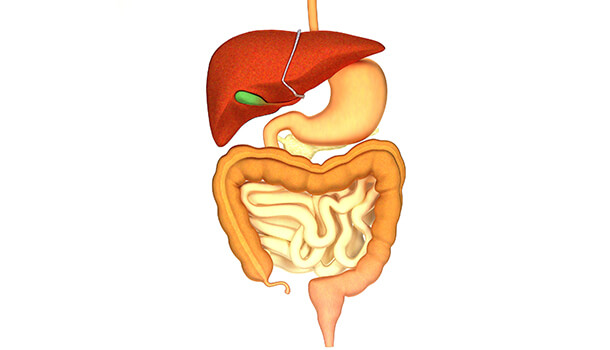
Constipation is the most common digestive disorder among Americans but you can treat it with healthy food habits. Kale is the best cruciferous vegetable you can choose to include in your diet, because of its high water content and rich fibre content.
Apart from Kale, you can include other foods like bananas, artichokes, Brussel sprouts, mangoes, almonds, figs, sweet potatoes, beans, quinoa, brown rice, oatmeal and pears into your diet to get rid of bowel irregularities and attain smooth and healthy digestion.
Kale contains 2 grams of dietary fibres for every 100 grams and the recommended intake of fibre is 25-30 grams per day.
8. How Kale Benefits Your Eye Health?

As we age, it is not only our skin that loses its elasticity! The working capacity of our body also deteriorates and our vision declines. Fortunately, we can choose to maintain certain healthy eating habits to make sure that our diet is enriched with components that boost our eye health.
Ageing is known to increase the risk of the two most common eye disorders – Cataract and AMD (Age-related macular degeneration).
Studies have shown that it is the oxidative stress, smoking, and ageing which are the three major factors that are responsible for these disorders.
But, the good news is that the prevention of these age-related disorders is totally within our hands. Ensuring that we get good amounts of lutein and zeaxanthin (at least 6mg per day) can decrease the risk of cataract and AMD. 16
Kale is one of the best sources of these two carotenoids, other foods being spinach, egg yolk, parsley and fortified foods.
9. Benefits Of Eating Kale For Pregnant Women

Pregnancy can seem like quite a tough phase, but only until you know what nutrients your plate should actually be loaded with. Then you know what to consume more often! Kale is the best source of all the major nutrients that are vital for a pregnant woman.
Iron, calcium, vitamin D, folic acid and iodine are the essential micronutrients that are required for the development of a healthy fetus and Kale is a good source of Iron (6% RDA), calcium (9% RDA), folate (4% RDA).
Dietary fibres, healthy fats and proteins are also essential for giving birth to a healthy baby. Kale provides dietary fibres with (10% RDA), healthy fats (1% RDA) and proteins (5% RDA).
How To Prepare Kale Smoothie?
Juices prepared out of green leafy veggies are raw to taste which is why you must blend them with other tasty fruits and ingredients to enjoy a good flavour and the best benefits simultaneously.
Ingredients Required To Prepare Kale Juice
- Kale leaves – One cup (sliced)
- 1 Orange (peeled)
- 1 Banana (peeled)
- Milk – Half cup
How To Prepare?
- Discard the stem of kale and collect the leaves. Rinse them to remove the dirt. Put the leaves into a blender jar.
- Add sliced orange and banana cubes into the blender and add in half cup of milk.
- Blend the ingredients until you obtain a smoothie of a thin consistency.
You can add ice cubes if you would like to enjoy the drink cold and savoury but you must not preserve the drink for a long period since it can reduce the nutritional value of the leafy green.
You can also replace your regular milk with soy milk or rice milk according to your preference of taste.
Is Kale Good For You? Who Should Avoid Kale?
Kale is not for everyone. Frequent consumption of kale should be avoided, particularly if you are facing the following health issues.
1. If You Are Suffering From Thyroid Issues
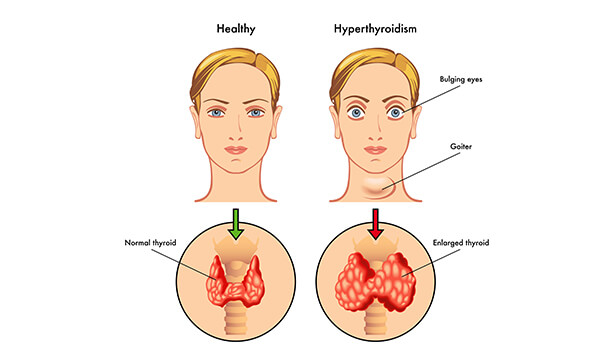
Kale contains goitrogens which can interfere with the functioning of your thyroid gland. So, if you are especially suffering from hypothyroidism, the problem may get aggravated which takes a huge negative toll on your entire metabolism. 17
This is because the thyroid gland is majorly responsible for maintaining a good metabolic rate.
2. Excessive Consumption Of Kale May Cause Kidney Stones
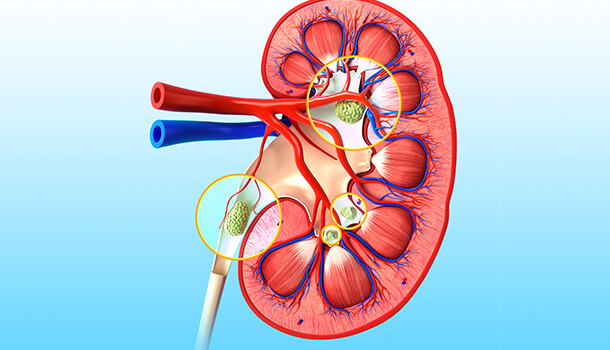
Kale contains oxalic acid in it. Oxalic acid, when combined with calcium, can result in the formation of kidney stones. The consumption of spinach should be limited for the same reason. 18
3. If You Are On A Blood Thinner Medication
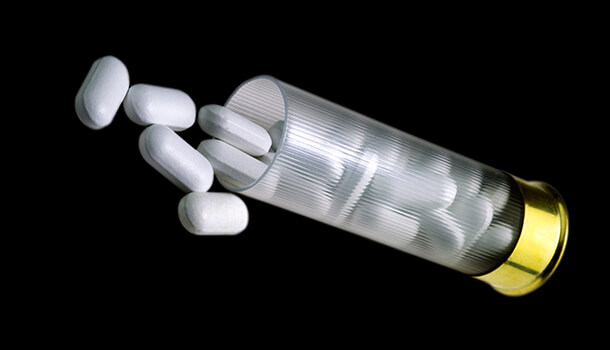
Blood-thinning medications are either taken intravenously (through veins) or orally. These are taken to prevent the blood from clotting so that there is an easy flow of blood to your heart. Kale, on the other hand, is the richest source of vitamin K (a blood clotting vitamin) which may interfere with your medication. 19
You can speak to your doctor about the consumption of kale to prevent any sort of complications.
4. If You Face Any Digestive Issues After Consuming Kale

Kale is rich in fibres which may help in easy digestion, but it also contains raffinose which is a kind of sugar that cannot be digested with much ease for someone with a weaker digestive system.
People who experience excessive bloating and flatulence soon after eating kale should cut down the consumption.
Summary!
Kale is the world’s best source of vitamin K, other important nutrients being vitamin A and vitamin C. Benefits of kale are numerous and all the credit goes to some amazing kale nutrition facts!
Frequent consumption of kale can assist in weight loss, protect your heart, prevent cancer, benefit those suffering from diabetes, prevent the risk of cancer, help in easy digestion, protect major eye diseases like cataract and macular degeneration, strengthen your bones and benefit pregnant women.
Kale benefits for skin include prevention of sunburns and wrinkles apart from resulting in a faster and better wound healing.
You can reap the maximum health benefits of kale by consuming freshly prepared kale smoothie on a regular basis. The recipe of a tasteful and healthy kale smoothie has been mentioned above. However, people who are using blood thinners, those suffering from thyroid, those facing digestive disorders and those suffering from kidney stones may have to avoid the consumption, considering its negative impact.
Otherwise, the relishing kale smoothie every day is the best choice you can make to upgrade your health!

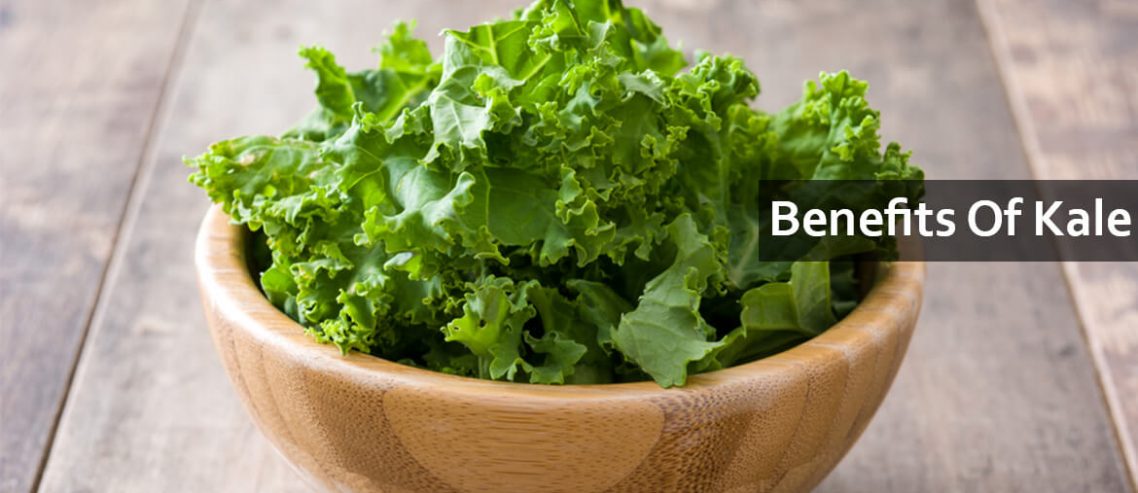


Comments
1 Comment
Hi Sudha ,
I have gone through your article and i found it is very useful ….
Please keep posting …..
All the very best
Regards,
Stranger
Leave a Comment